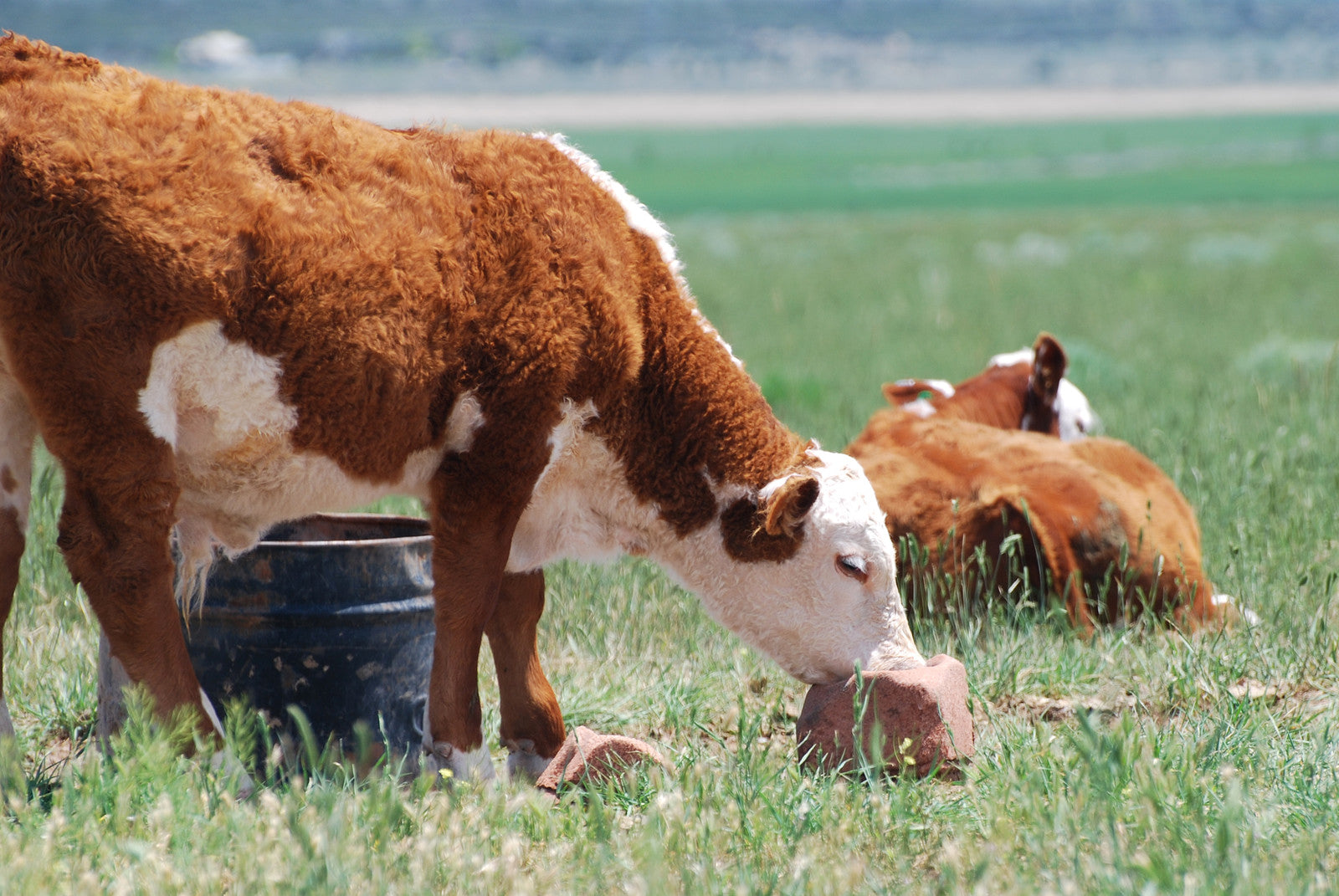|
It’s hot. Your cattle sweat. They need to consume more water. Because of this, they also need to be receiving adequate mineral supplementation to maintain proper balances to thrive. Minerals provide a wide array of necessary nutrients, from electrolytes to maintain adequate hydration and cardiovascular function to calcium for strong bones. It may be hard to keep up with the demands of checking and filling feeders or replacing blocks regularly, but it’s in your best interest to ensure your cattle have 24/7 access to adequate mineral supplementation.
Choosing the Right SupplementsIt can be daunting to figure out which minerals your cattle need and which they don’t. It all comes down to the feed they’re consuming, the presence of naturally occurring minerals in the water source, etc.
Mineral SupplementationOnce you’ve determined which gaps you need to fill in your cattle’s mineral profile you can begin supplementing. In many cases standard mineral blocks are adequate. This is a convenient way to supplement cattle on range or pastureland that are eating a diet of grass and forage. If you’re keeping cattle in this setting, place the blocks in areas where they spend a lot of time. These can include areas near water sources, shady areas, loafing sheds, etc. This allows them maximum opportunity to consume optimum quantities. A common rule of thumb for free-access is to have one mineral station for every 30 head. If you are feeding a concentrated diet, you can use a feed additive with the right mineral balance to meet your cattle’s needs. Some companies will create customized mineral supplements to meet the specific needs of your cattle and their environment. Observing Mineral ConsumptionIt’s important to keep an eye on how well your cattle are consuming their mineral supplements. Replace them as needed to ensure that there is always a constant supply. It can become tricky if your veterinarian has recommended medications to include in a mineral combination. This will make it even more important to observe consumption to ensure that your cattle are receiving not only adequate minerals but also the proper amounts of medication. If those medications include antibiotics, you’ll need to establish a “Veterinary Feed Directive” (also known as a VFD). Your herd veterinarian can work with you on determining what is right for your herd’s management. Proper mineral supplementation can mean the difference between your cattle thriving or merely surviving. Taking the time now to ensure your animals are receiving what they need will eventually find its way to a healthy bottom line.
Related Posts
|





